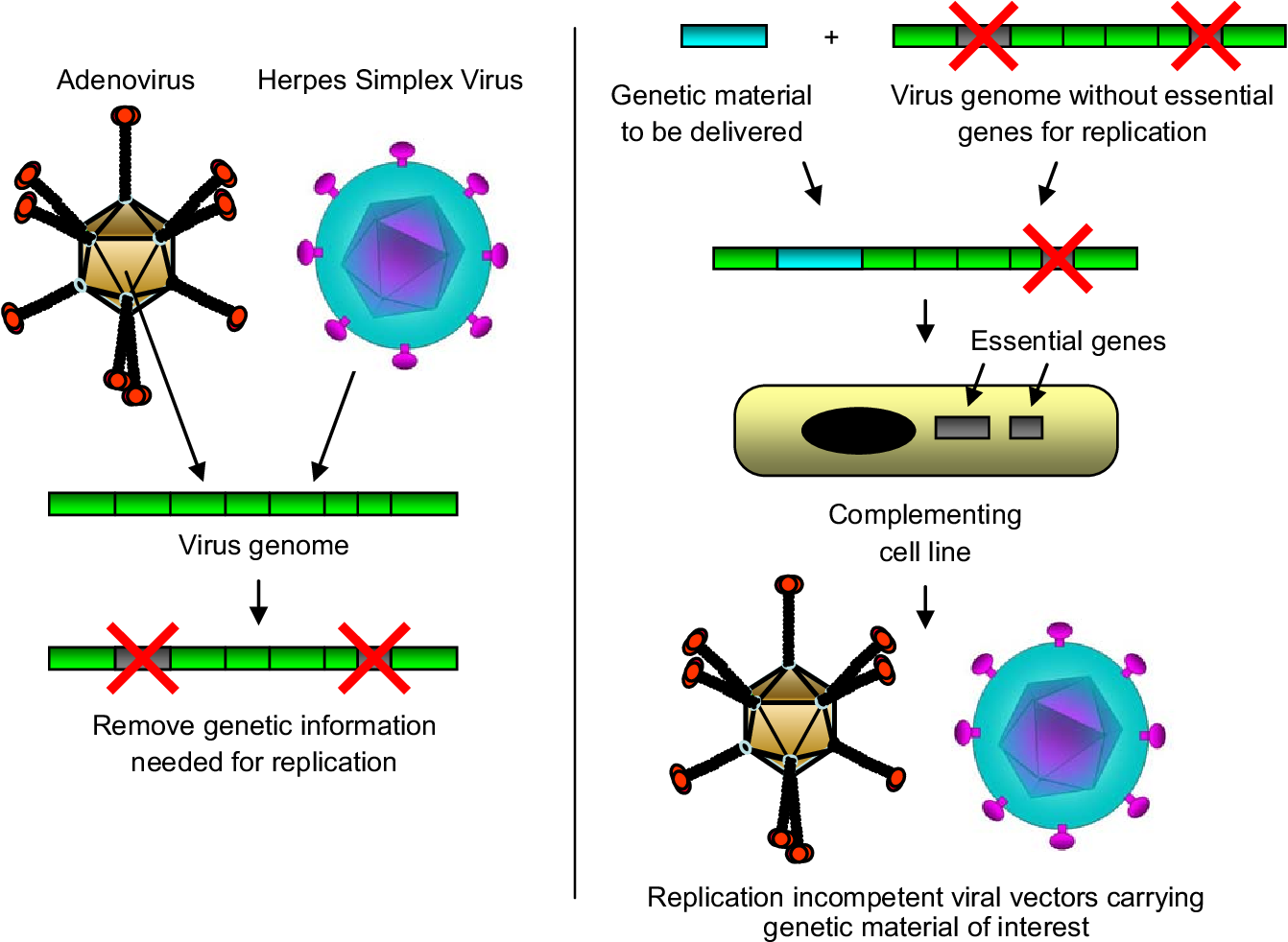Origin Of Viruses Study Guide
Introduction:
Viral evolution is an important aspect of viral diseases such as influenza, HIV, Hepatitis, etc. There is much debate and confusion about the origin of viruses among virologists, and they have evolved and come up with three basic hypotheses regarding this.
Origin of viruses:
There are three classical hypotheses about the origin and evolution of viruses, they are:
-
The progressive or escape hypothesis: This states that viruses arise from genetic elements that gain the ability to move between cells. This theory states that some viruses evolved from bits of DNA and RNA that escaped from the genes of larger organisms and species.
-
The regressive hypothesis: This is also called the Degeneracy theory. It states that viruses may have originated from a reduction or regressive process. They said that the viruses were small cells once upon a time that parasitized larger cells. This is supported by the discovery of giant viruses which had similar genetic material to parasitic bacteria.
-
Virus – first hypothesis: The previous two hypotheses observed that cells existed before viruses. But this theory states that viruses first evolved from the complex molecules of nucleic acid and proteins before cells first appeared on earth. Hence, according to this theory, viruses contribute to cellular life.
This base is supported by the fact that all viral genomes encode proteins in which cellular homologs are absent. But this hypothesis has been rejected by a few scientists because it violates the definition of a virus where they require a host cell to replicate.
No single hypothesis may be correct:
Where the viruses originated is not a simple answer. Viruses may have arisen from mobile gene elements that gain the ability to move between cells. They could even be descendants of the free-living organisms adapted to a parasitic replication strategy. Viruses existed before and led to the evolution of cellular life.
Why do viruses exist?
Most people are unaware of the roles that a virus plays in our lives and around us, as they tend to focus on the ones that cause only trouble to humanity. According to scientists and virologists, life and humanity would cease to exist without viruses as they play important roles, especially in our survival.
Importance of viruses:
- Key to ecosystems: Viruses are important biological predators influencing the global biogeochemical cycles and help and drive microbial evolution. Hence, they are major predators of the microbial world.
- Some organisms also depend on viruses for survival, giving them an edge in the competitive world. For example, viruses play an important role in helping cows to turn cellulose from grass into sugar that is metabolized and turned into body mass and milk.
- Protect humans: Infection with a few benign viruses will help ward off pathogens in humans. For example, GB virus C – a common blood-borne virus in humans is linked to the delaying of AIDS in HIV-positive patients.
- Some viruses are also therapeutic agents for treating a few illnesses and disorders. For example, phage therapy uses certain viruses to treat bacterial infections. Also, oncological viruses have saved several lives when the traditional antibiotics have been in vain.
- As viruses constantly mutate and replicate, they are also very important for genetic innovation that other organism species can incorporate.
-
Viral elements account for 8% of a human genome and 14% of other mammalian genomes. The viral codes manifest as inert DNA pieces. These genes of viral origin encode proteins that play a prominent role in long-term memory formation.
-
Also, the wealth of viral diversity will help us unlock a clear understanding of how bodies, ecosystems, and our entire planet works. It helps bring equilibrium and balance to our lives.
How do viruses get their names? Is a virus a living thing?
Viruses are named based on their genetic structures to facilitate the development of vaccines, medicines, etc. They generally get their names from a body which is the International Committee on Taxonomy of Viruses (ICTV).
Viruses are not living things. They are complicated combinations and complex molecules consisting of proteins, nucleic acids, carbohydrates, and lipids. But they cannot do anything on their own but carry out functions only after they enter living cells. In the absence of cells, viruses would not be able to multiply. Hence they are not living organisms.
Conclusion:
- There is no clear explanation of the origin of the viruses to date.
- They may have arisen from mobile genetic elements or even the descendants of free-living organisms that adopted a parasite living strategy.
- But, it is evident that viruses existed much before leading to the evolution of cellular organisms.
FAQs:
1. Do viruses have DNA?
Viruses are a small assembly of genetic code that may contain DNA or RNA surrounded by a protein coat called a capsid.
2. Do viruses have ribosomes?
Viruses do not have their ribosomes, and they attack the ribosomes of the human cells to make more viruses.
3. Do viruses respond to stimuli?
When isolated, viruses show none of the signs of life. Hence, they do not even respond to stimuli or grow.
4. Who is the father of viruses?
Martinus Beijerinck gave the first name ‘ virus ‘ and is often called the Father Of Virology. His laboratory grew into an important microbiological center.
5. What are the five symptoms of Covid?
The 5 symptoms of covid are:
- Fever
- Dizziness
- Headache
- Dry cough and breathlessness
- Fatigue and muscle weakness.
6. Which was the first virus, and who do create viruses?
The first virus was the Tobacco Mosaic Virus, which scientist Ivanoski reported in 1892.
We hope you enjoyed studying this lesson and learned something cool about the Origin of Viruses! Join our Discord community to get any questions you may have answered and to engage with other students just like you! Don’t forget to download our App to experience our fun, VR classrooms – we promise, it makes studying much more fun! 😎
Sources:
- The Origins of Viruseshttps://www.nature.com/scitable/topicpage/the-origins-of-viruses-14398218/ Accessed on 8 Dec 2021
- Virus Originhttps://flexbooks.ck12.org/cbook/ck-12-biology-flexbook-2.0/section/7.12/primary/lesson/discovery-and-origin-of-viruses-bio/ Accessed on 8 Dec 2021.
- The origin of viruseshttps://www.sciencedirect.com/science/article/abs/pii/S0923250809001065 Accessed on 8 Dec 2021
- The Origin of Viruseshttps://www.bbvaopenmind.com/en/science/research/the-origin-of-viruses-a-puzzle-that-will-help-us-to-understand-evolution/ Accessed on 8 Dec 2021


